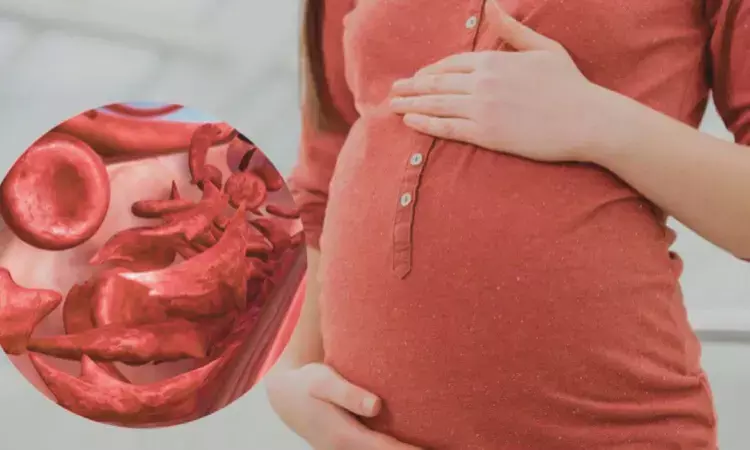- Home
- Medical news & Guidelines
- Anesthesiology
- Cardiology and CTVS
- Critical Care
- Dentistry
- Dermatology
- Diabetes and Endocrinology
- ENT
- Gastroenterology
- Medicine
- Nephrology
- Neurology
- Obstretics-Gynaecology
- Oncology
- Ophthalmology
- Orthopaedics
- Pediatrics-Neonatology
- Psychiatry
- Pulmonology
- Radiology
- Surgery
- Urology
- Laboratory Medicine
- Diet
- Nursing
- Paramedical
- Physiotherapy
- Health news
- Fact Check
- Bone Health Fact Check
- Brain Health Fact Check
- Cancer Related Fact Check
- Child Care Fact Check
- Dental and oral health fact check
- Diabetes and metabolic health fact check
- Diet and Nutrition Fact Check
- Eye and ENT Care Fact Check
- Fitness fact check
- Gut health fact check
- Heart health fact check
- Kidney health fact check
- Medical education fact check
- Men's health fact check
- Respiratory fact check
- Skin and hair care fact check
- Vaccine and Immunization fact check
- Women's health fact check
- AYUSH
- State News
- Andaman and Nicobar Islands
- Andhra Pradesh
- Arunachal Pradesh
- Assam
- Bihar
- Chandigarh
- Chattisgarh
- Dadra and Nagar Haveli
- Daman and Diu
- Delhi
- Goa
- Gujarat
- Haryana
- Himachal Pradesh
- Jammu & Kashmir
- Jharkhand
- Karnataka
- Kerala
- Ladakh
- Lakshadweep
- Madhya Pradesh
- Maharashtra
- Manipur
- Meghalaya
- Mizoram
- Nagaland
- Odisha
- Puducherry
- Punjab
- Rajasthan
- Sikkim
- Tamil Nadu
- Telangana
- Tripura
- Uttar Pradesh
- Uttrakhand
- West Bengal
- Medical Education
- Industry
IV Ferric Carboxymaltose Reduces Anemia in Late Pregnancy More Effectively Than Oral Iron: Malawi Study

Malawi: A recent large trial conducted in Malawi has shown that a single infusion of intravenous ferric carboxymaltose (FCM) during the third trimester significantly reduces the prevalence of anemia in pregnant women, surpassing the effectiveness of oral iron tablets. The study, published in Nature Medicine, highlights the potential of FCM as a more efficient treatment for anemia before childbirth, offering a promising alternative to traditional iron supplementation.
"In one of the largest trials on iron deficiency, conducted with nearly 600 pregnant women at antenatal clinics in Malawi, the results showed a lower prevalence of anemia in those who received iron infusions (46.7%) compared to those who took iron tablets (62.7%) at the time of delivery," the researchers reported.
The researchers note that anemia, a preventable cause of illness and death, remains a global concern as any woman can develop it during pregnancy. In Africa, over 46% of pregnant women are anemic. While oral iron supplements are commonly recommended, their effectiveness is often limited, particularly in the later stages of pregnancy. Intravenous ferric carboxymaltose (FCM) shows promise as an effective treatment for anemia in the third trimester, especially in sub-Saharan Africa. This highlights the ongoing need to prioritize anemia as a global health issue.
Against the above background, Sant-Rayn Pasricha, Department of Medical Biology, The University of Melbourne, Parkville, Victoria, Australia, and colleagues conducted an open-label, individually randomized trial (REVAMP-TT) in antenatal clinics in southern Malawi to evaluate the effectiveness of different treatments for anemia in pregnant women. REVAMP-TT was an open-label, parallel-group, individually randomized controlled trial carried out in primary healthcare settings in southern Malawi, a low-income country in sub-Saharan Africa.
The researchers randomized 590 women, between 27 and 35 weeks of gestation with capillary hemoglobin levels <10.0 g/dl, to receive either ferric carboxymaltose (20 mg/kg up to 1,000 mg, administered once at enrollment) or the standard of care (60 mg elemental iron, twice daily for 90 days). Both the participants and their infants were followed up to 4 weeks postpartum. The primary outcomes were maternal anemia at 36 weeks of gestation or at delivery (whichever occurred first) and neonatal birthweight.
The study revealed the following findings:
- At the primary timepoint, 126 out of 270 women (46.7%) in the FCM group were anemic, compared to 170 out of 271 women (67.3%) in the standard-of-care group (PR, 0.74).
- There was no significant difference between groups in neonatal birthweight (mean difference 10.9 g).
- No serious infusion-related reactions were reported, and there were no differences in adverse events between the two groups.
The World Health Organization (WHO) recommends treating antenatal anemia with oral iron supplementation; however, the limited time before labor can make it challenging to restore hemoglobin levels with oral iron. Additionally, adherence to the recommended oral iron course is often a problem, with only 29% of pregnant women in sub-Saharan Africa completing the full treatment.
"The study findings suggest that intravenous iron can be safely administered in basic health centers in remote countries, and therefore, all healthcare settings should be equipped to safely and effectively increase the use of IV iron. We also plan to share these findings with the WHO to support the development of future global antenatal care guidelines," the researchers concluded.
Reference:
Pasricha, S., Moya, E., Ataíde, R., Mzembe, G., Harding, R., Mwangi, M. N., Zinenani, T., Prang, K., Kaunda, J., Mtambo, O. P., Vokhiwa, M., Mhango, G., Fielding, K., Demir, A., Von Dinklage, N., Verhoef, H., McLean, A. R., Braat, S., & Phiri, K. S. (2025). Ferric carboxymaltose for anemia in late pregnancy: A randomized controlled trial. Nature Medicine, 1-10. https://doi.org/10.1038/s41591-024-03385-w
Dr Kamal Kant Kohli-MBBS, DTCD- a chest specialist with more than 30 years of practice and a flair for writing clinical articles, Dr Kamal Kant Kohli joined Medical Dialogues as a Chief Editor of Medical News. Besides writing articles, as an editor, he proofreads and verifies all the medical content published on Medical Dialogues including those coming from journals, studies,medical conferences,guidelines etc. Email: drkohli@medicaldialogues.in. Contact no. 011-43720751


